English
English
At Benton Dene Primary School, we believe that literacy and communication are key life skills and that it is our role, through the English curriculum, to help children develop the knowledge and skills to enable them to communicate effectively and creatively with the world at large, through spoken and written language. Through promoting a love of reading that is embedded within our school, we strive to help children to enjoy and appreciate literature and its rich variety.
Aims and Objectives:
As a school, we aim to promote high standards of language and literacy by equipping children with a strong command of the spoken language and the written word as well as developing their love of literature through widespread reading both across the curriculum and at home. As a school, we aim to ensure that all pupils:
- Read confidently, fluently and with good understanding develop the habit of reading widely and often, for both pleasure and information across a range of genres
- Acquire a wide vocabulary, an understanding of grammar and knowledge of linguistic conventions for reading, writing and spoken language
- Appreciate a rich and varied literary heritage
- Write clearly and accurately, adapting their language and style in and for a range of contexts, purposes and audiences
- Use discussion in order to learn; to elaborate and explain clearly their understanding and ideas
- Are competent in the arts of speaking and listening, making formal presentations, demonstrating to others and participating in debate.
Speaking and Listening
We regularly use drama and speaking and listening to support our curriculum. From Helicopter stories with our EYFS children, through to Talk for Writing, performances for parents and the use of ICT and social media we value opportunities to talk and share ideas. Speaking and listening skills are promoted throughout the curriculum through whole class and group discussion, the regular use of talk partners and skilled questioning to prompt explanation and encourage conversation. Teachers are role models; demonstrating the importance of high quality spoken language; modelling and promoting careful and respectful listening skills. Drama is a key technique for supporting our reading lessons. Children have regular opportunities to record and observe these key skills; regularly demonstrated to parents and carers in class assemblies.
Vocabulary
Vocabulary is a key component of our curriculum. It is regularly referred to throughout all interactions. We provide extensive opportunities for the children to encounter vocabulary throughout the school day. This may be through; high-quality texts, conversations and questions, independent reading and being read to, modelled writing, listening to others, fiction and non- fiction, poetry, direct teaching, assemblies, trips and visitors, break times and performances. As a school, we value the importance of vocabulary by making words a priority in our classrooms, empowering our pupils, having fun and enriching the whole school. Our staff utilise every opportunity throughout the school day (not just in an English lesson starter) to introduce and explore the meaning of words. As a school we understand that vocabulary should underpin all aspects of the curriculum. Every interaction, every conversation, every minute, every lesson, every day is vital – it’s about the sum of all the small parts and valuing the marginal gains of each interaction.
English lessons are an opportunity to introduce a progressive selection of tier 2 vocabulary words with pupils being supported to understand the meaning of new words, explore synonyms and antonyms and apply those words in context. Tier 3 vocabulary is similarly introduced and explored on a subject by subject basis. We promote and scaffold high quality academic talk in the classroom, with key terminology clearly displayed for children to refer to in their own talk and writing. Pupils quickly become adept at using more complex language, varying verbs and adjectives, while developing a greater capacity to show not tell. Quite quickly, ‘big’ will become ‘enormous’; ‘happy’ will become ‘elated’; and what was once ‘boring’ will become ‘mundane’ or even ‘tedious’!
The learning environment supports vocabulary development with key words, images and contextualised examples; this includes the use of subject specific knowledge organisers and working walls for the children to develop and become proficient with throughout units of work. These are regularly referred to in class.






















